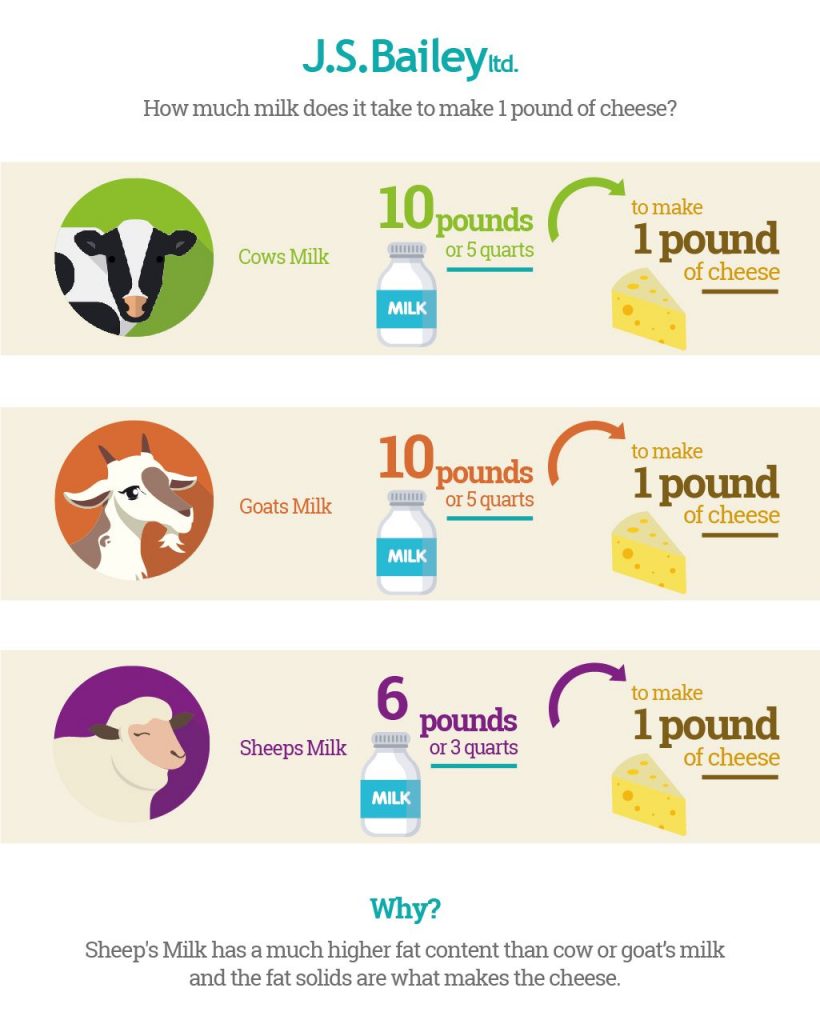As top cheese suppliers, we get asked all sorts of fun and strange questions about cheese. We always love to hear these questions because cheese is one of the most fascinating food products in our humble opinion.
The biology of cheese is truly intriguing and its production is actually quite a delicate science. When judging the price of a food product one needs to consider the amount of ingredients used and this is usually why we get asked how much milk does it take to make one pound of cheese. The answer could of course help you decide if you are getting a good deal on your cheese or paying over the odds but the answer may surprise you because there is not one answer to this question.
The amount of milk required to make one pound of cheese varies on the type of milk. Not all cheese comes from cows, many varieties are made from goat or even sheep’s milk. All these milks have different chemical consistencies and therefore different amounts go into making the same amount of cheese.

How much cow’s milk do you need to make one pound of cheese?
Roughly 10 pounds or 5 quarts
How much sheep’s milk do you need to make one pound of cheese?
Roughly 6 pounds or 3 quarts
How much goat’s milk do you need to make one pound of cheese?
Roughly 10 pounds or 5 quarts
So, what makes sheep milk create the same amount of cheese with less volume of milk? Cheese comes from the milk curds. These are the solids found in milk when you start to let it go off in a controlled environment to produce cheese.
These curds are essentially fat (this is why cheese has such high calories). Sheep milk has a higher fat content than goat or cow’s milk therefore there is more fat in each quart of milk so it takes less volume of milk to produce the same amount of fatty solids.


